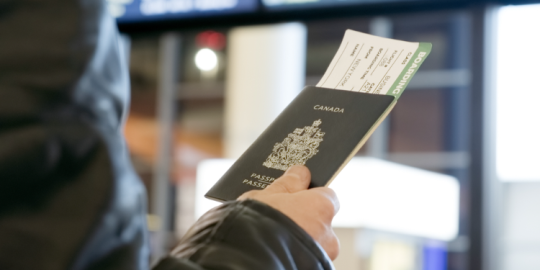As more than two million Ukrainians flee war in their homeland, a much smaller and quieter exodus took place in Russia. Although there are no statistics tracking foreigners fleeing Russia, many non-Russians with the means had left the country due to financial reasons as they faced international sanctions, rising prices, currency devaluation and tensions. Some expatriates from Latin America remain in the Russian capital to finish their studies and didn't have their plans changed.
Global Guardian, a U.S. firm that advises businesses on security risks, has so far helped more than 2,000 people from 22 U.S. and European companies leave Moscow and St. Petersburg since the Russian invasion of Ukraine. The companies included those in law, consulting and technology, and their staff left via land or commercial and charter flights.
Expats experiences: “The war hardly affects me”
Juan Salvador, an expat from Latin America, moved 6 years ago to Moscow to study. He moved there to take advantage since the ruble currency was devalued, Juan could change dollars and have a profit. But now the war affects him. “The prices did rise, and we no longer have the benefits of the low ruble since the government tries to control and maintain its value. But in terms of security, I feel safe, all calm”, he shares.
However, the war didn't make him change his plans. He'll still finish his studies, and maybe he'll stay there or come back to his country. “The war does not affect me because my nationality is not affected by visa blocks. Maybe if I wanted to work in Europe, it would impact me because my degree would be less appreciated, but I don't want to work in Europe. And if I want to stay in Russia, now there will be a shortage of specialists, engineers, and programmers since all the companies have left, and they will have to build everything themselves”, he said.
Christofer, another expat from Latin America, came to Moscow 3 years ago for studies. For him, the economic consequence is the most difficult challenge now in Russia. “In reality, the war hardly affects anything in my daily life. The only thing is that it is difficult to exchange foreign currency. Also, the problem is the credit and debit cards; you can't use foreign cards”, he said.
As Juan, Christofer comments that he doesn't fear for his security living in Moscow, but his conscious economic aspects do make him fear. “For me, security is economic stability. Since I have enough money for a couple of months, the situation doesn't impact me that much. For now, I feel safe.”
As well as Juan, his plans haven't changed much as he had planned to return to Ecuador after finishing his master's degree. “Even without the war, my plan was to return. In general, I tell you that the people who stayed here are fine, they feel calm. Those who felt the danger, instability or had problems left already.”
As both Latin American expats share, Ness, a North Dakotan expat in Russia, said to the Wall Street Journal that the Moscow area seems largely unaffected by the war or the sanctions levied against Russia. Ness has considered renting longer-term accommodation but hasn't yet because he sees Ukrainian refugees in the city. “I don't want to take away housing from people who are really in a bad situation,” he said.
Russia was home to expatriates
The Russian capital, Moscow, was home to hundreds of thousands of international students, well-heeled executives and expatriates who had made a life for themselves along Moscow's leafy boulevards, outdoor cafés and upscale residential districts. The low valued currency compared to dollars was one of the most attractive things as well as low university tuition fees for expats from overseas.
As Western sanctions piled on Russia, many have tried to carry on with their lives. That has been changing after an abrupt statement from the U.S. Embassy last week warned Americans to leave Russia as soon as possible, while some commercial flights out were still available and overland borders remained open.
What's next?
Meanwhile, expats in Russia might find themselves largely trapped – thousands of flights have been cancelled, and many routes out of the country are suspended indefinitely. Taking money out is difficult, thanks to the Kremlin's ban on most currency exchanges and exports of hard currency. The current steps the Kremlin has been taking in the face of a looming economic collapse make it clear that it has no intention of preserving Russia's market economy.
















